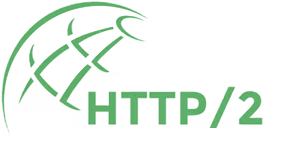
 Since its inception in the early 1990s, HTTP has only undergone a few significant revisions. The most recent version, HTTP 1.1, has been in use for over 15 years. In an era of dynamic content updates, resource-intensive multimedia formats, and the constant drive for better web performance, the technologies of older protocols have become outdated. These trends call for substantial changes, which HTTP/2 addresses.
Since its inception in the early 1990s, HTTP has only undergone a few significant revisions. The most recent version, HTTP 1.1, has been in use for over 15 years. In an era of dynamic content updates, resource-intensive multimedia formats, and the constant drive for better web performance, the technologies of older protocols have become outdated. These trends call for substantial changes, which HTTP/2 addresses.
The main goal of developing the new version of HTTP was to deliver three key qualities—simplicity, high performance, and resilience—without relying on additional network technologies. These improvements were achieved by reducing delays in processing browser requests through techniques like multiplexing, compression, request prioritization, and server-initiated data sending (Server Push).
HTTP/2 includes enhancements like flow control, upgrade, and error handling, which help developers achieve high performance and resilience in web applications. The collective system allows servers to efficiently send more content to clients than requested, preventing repeated requests until the entire site is fully loaded in the browser. For instance, HTTP/2's Server Push feature enables the server to deliver all the page content at once, except for what’s already cached in the browser. Protocol overhead is minimized through effective compression of HTTP headers, improving performance with each browser request and server response.
Why is it important to look for ways to speed up website page loading times?
John Mueller, an analyst from the Google Webmaster Trends team, wrote in his blog that having HTTP/2 support on a website is not directly a ranking factor in Google. However, loading speed is a significant ranking factor in itself, so it makes sense to start using HTTP/2 for SEO purposes.
He added that simply speeding up a website should positively impact its ranking due to behavioral factors. Faster pages tend to have lower bounce rates, and more users are likely to take action on such pages, which can influence search rankings.
John Mueller also mentioned that Googlebot will soon start supporting HTTP/2. And who knows—perhaps in the future, having HTTP/2 on a website could become a ranking factor, as search engines are constantly updating their algorithms.
Does HTTP/2 offer anything to web developers?
Yes! HTTP/2 eliminates the need for several actions that were used to speed up page loading without HTTP/2. These include: